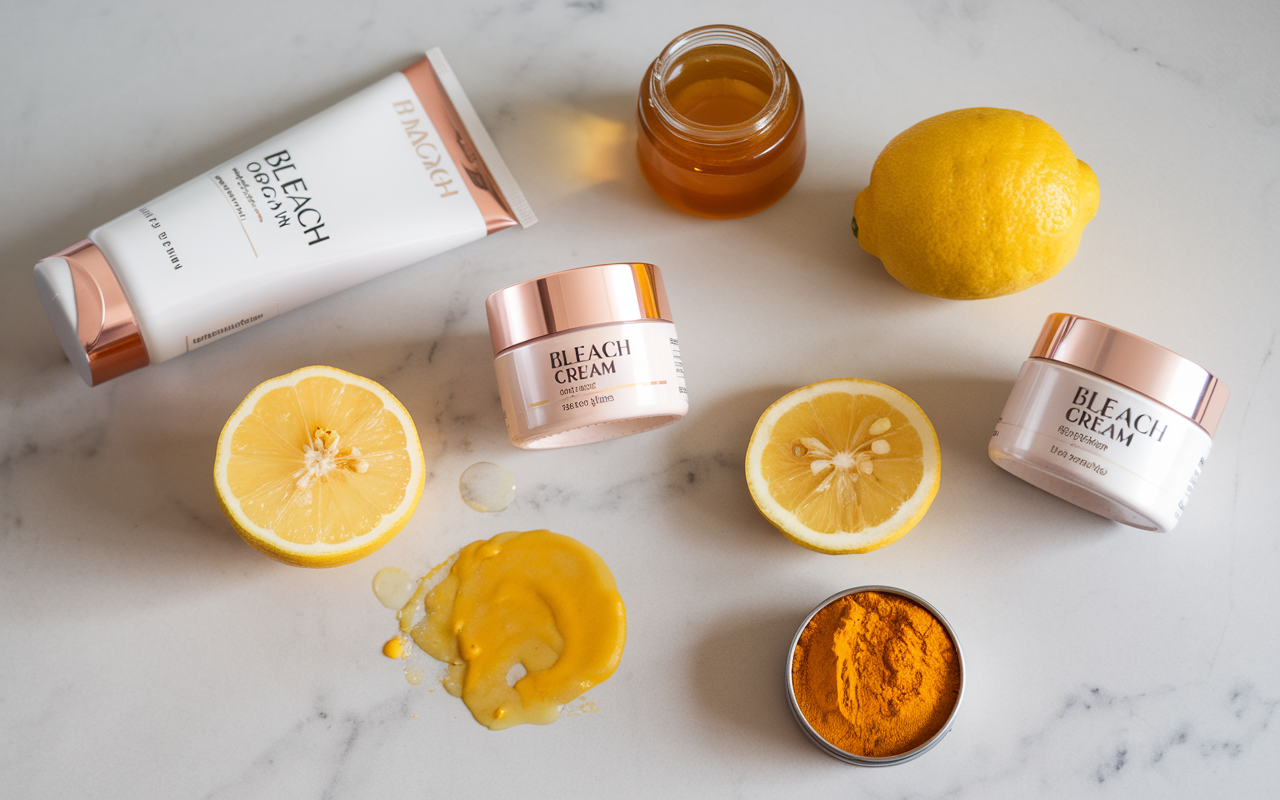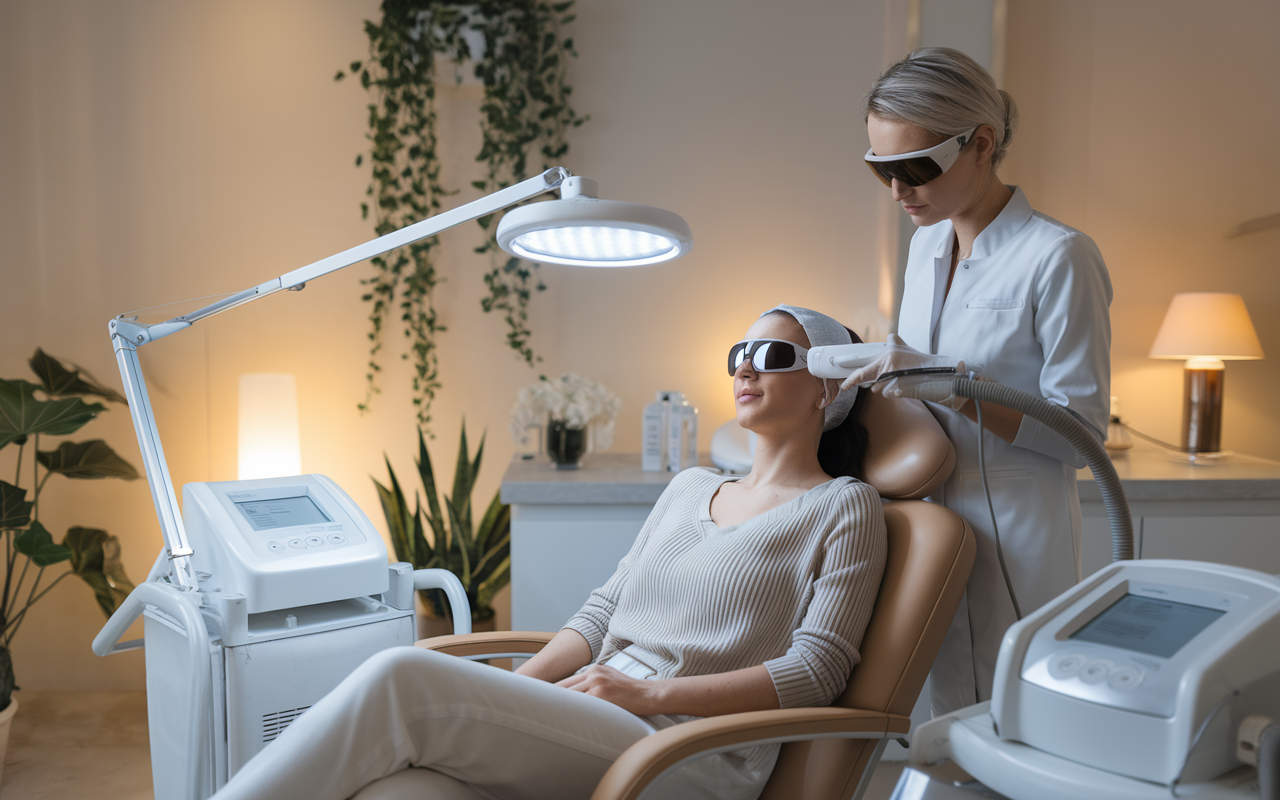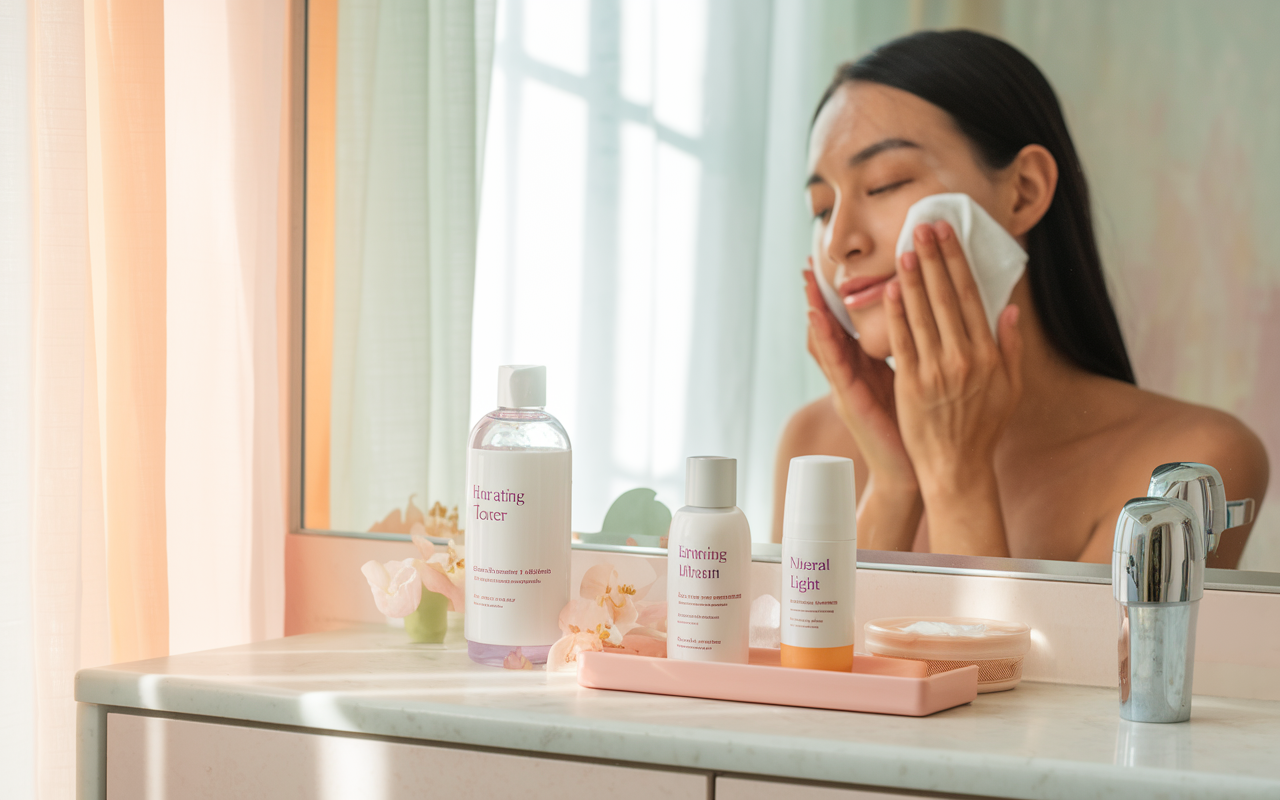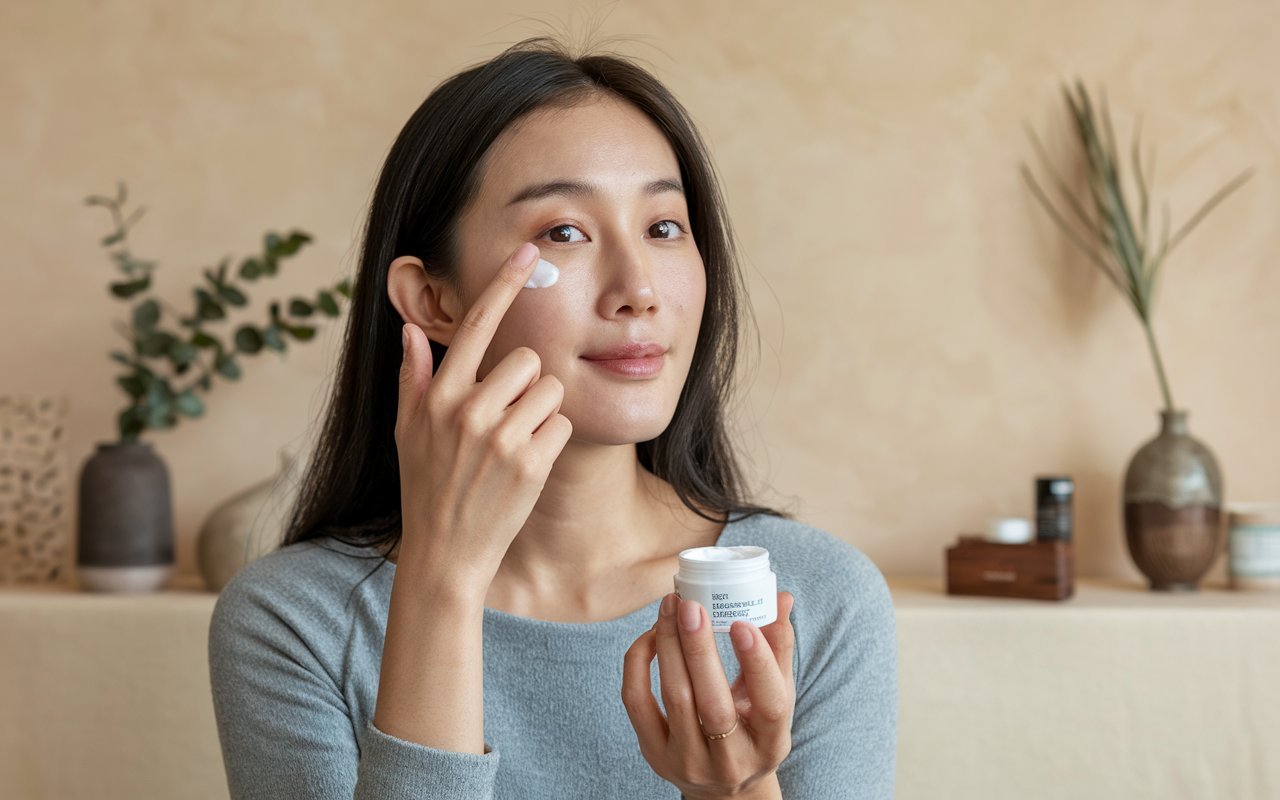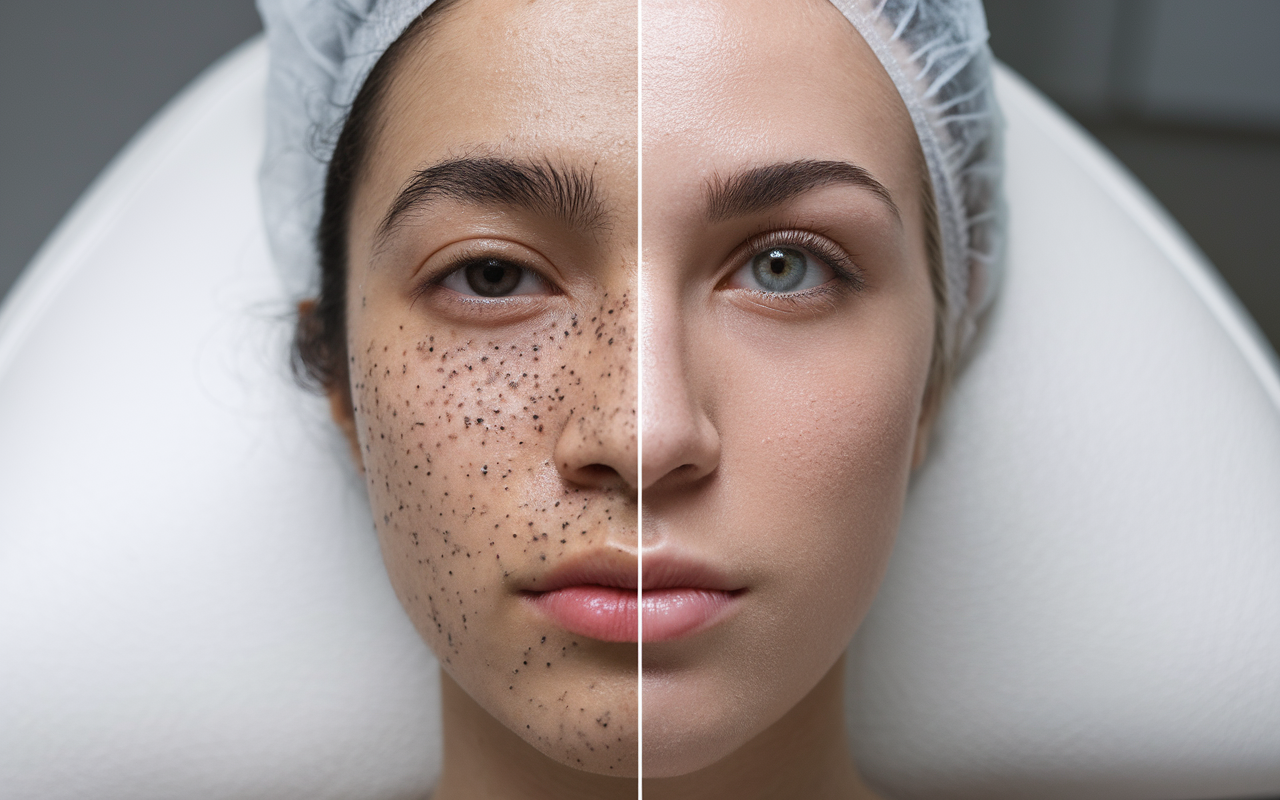
Introduction
Let’s face it: blackheads can be downright frustrating. Those little dark spots that seem to pop up out of nowhere can really put a damper on your confidence. But you’re not alone. Blackheads are a common skin issue that many of us battle. So, what exactly are they, and why are they such a pain?
Understanding Blackheads
Blackheads, also known as open comedones, are a type of acne caused when hair follicles become clogged with excess oil and dead skin cells. Unlike whiteheads, which are closed off from the air, blackheads remain open, causing the trapped oil to oxidize and turn a dark color. Blackheads get their distinctive appearance because of this.
But what triggers this annoying skin condition? Blackheads can be caused by a variety of factors, including genetics, hormonal changes, and even certain medications. They can appear anywhere on your body but are most commonly found on your face, particularly on the nose and chin.
The Science Behind Blackheads
To better understand how to effectively remove blackheads, it’s important to grasp the science behind them. Blackheads form when the sebaceous glands in the skin produce too much oil (sebum). This excess oil combines with dead skin cells, creating a plug that blocks the hair follicle. When the clogged pore is exposed to air, it oxidizes and turns black, forming a blackhead.
Common Causes of Blackheads
Several factors can increase the likelihood of blackhead formation:
- Hormonal changes: Hormonal fluctuations, especially during puberty, menstruation, and pregnancy, can cause an increase in oil production, leading to blackheads.
- Genetics: If your parents had blackheads, chances are you might have them too.
- Improper skincare: Not cleansing your face properly or using products that clog pores can contribute to blackhead formation.
- Diet and lifestyle: High consumption of dairy, sugar, and greasy foods, as well as stress, can exacerbate skin issues like blackheads.
Understanding these causes is the first step in learning how to remove blackheads effectively and prevent them from coming back.
The Emotional Toll of Blackheads
Let’s talk about something that often gets overlooked: the emotional toll of blackheads. These tiny spots can have a big impact on your self-esteem. They can make you feel self-conscious, affect your social life, and even lead to anxiety about your appearance. It’s not just about having clear skin; it’s about feeling comfortable in your own skin. That’s why finding an effective solution to remove blackheads is so important.
Imagine waking up in the morning, excited to face the day, only to look in the mirror and see those pesky blackheads staring back at you. It can feel like a never-ending battle, constantly trying new products and remedies in hopes of finding something that works. But remember, you are not alone in this fight, and there are ways to effectively remove blackheads and regain your confidence.
Preventing Blackheads: The Basics
So, what’s the secret to keeping blackheads at bay? It all begins with a healthy skincare routine. Consistency is key. Cleansing your face twice a day, exfoliating regularly, and using non-comedogenic products can make a world of difference. Remember that what works for one individual might not work for another. It’s critical to select products that are specific to your skin type.
Selecting the Ideal Products for Your Skin Type
Not every skincare product is created equal. To effectively remove blackheads, you need to use products that are suited for your skin type. For example, if you have oily skin, opt for a gel-based cleanser that can help control oil production. For dry skin, a cream-based cleanser that provides hydration might be more suitable.
Diet and Lifestyle Factors That Influence Blackheads
Your diet and lifestyle also play a significant role in the health of your skin. Drinking plenty of water, eating a balanced diet rich in fruits and vegetables, and avoiding excessive consumption of greasy and sugary foods can help reduce the occurrence of blackheads. And let’s not forget about stress—managing it can also have a positive effect on your skin. Stress can lead to hormonal imbalances, which can, in turn, increase oil production and exacerbate blackhead formation.
Deep Cleansing Techniques to Remove Blackheads
Now that we’ve covered the basics, let’s dive into some deep cleansing techniques that can help remove blackheads and keep your skin looking clear and radiant.
Exfoliation to Remove Dead Skin Cells
Exfoliation is crucial for preventing blackheads because it helps remove the dead skin cells that can clog your pores. Exfoliation can be categorized into two types: chemical and physical.
Physical Exfoliation
This involves using a scrub with small, gritty particles to manually slough off dead skin cells. While effective, it’s important to use gentle products to avoid irritating your skin. Over-exfoliating can cause microtears in the skin, leading to inflammation and increased oil production, which can actually make blackheads worse.
Chemical Exfoliation
This method uses acids, like alpha-hydroxy acids (AHAs) or beta-hydroxy acids (BHAs), to dissolve the bonds between dead skin cells, allowing them to be easily removed. This type of exfoliation can be more effective for blackheads because it penetrates deeper into the pores. BHAs, such as salicylic acid, are especially effective for oily and acne-prone skin because they are oil-soluble and can penetrate deep into the pores to remove blackheads.
How Often Should You Exfoliate to Remove Blackheads?
It depends on your skin type. For most people, exfoliating 2-3 times a week is sufficient to remove blackheads, but those with sensitive skin might want to stick to once a week. It’s important to pay attention to how your skin responds and adjust your exfoliation routine accordingly. If your skin becomes red, irritated, or overly dry, it’s a sign that you may be over-exfoliating.
Using Facial Cleansers to Remove Blackheads
Choosing the right cleanser can make a big difference in your fight against blackheads. Look for products that contain ingredients like salicylic acid, which helps to exfoliate the skin and unclog pores. Other beneficial ingredients include benzoyl peroxide, which helps reduce bacteria and oil production, and glycolic acid, which helps exfoliate the skin.
Ingredients to Look for in a Cleanser
When choosing a cleanser to remove blackheads, look for products labeled as “non-comedogenic,” which means they won’t clog your pores. Ingredients like salicylic acid, benzoyl peroxide, and glycolic acid are excellent choices for those prone to blackheads.
How to Properly Cleanse Your Face
To effectively remove blackheads, cleanse your face twice a day using a gentle, circular motion with your fingertips. Rinse with lukewarm water and dry with a clean towel. Avoid using hot water because it can remove your skin’s natural oils and cause greater oil production.
Natural Remedies for Blackhead Removal
If you prefer a more natural approach, there are plenty of home remedies that can help remove blackheads. While these remedies may not be as potent as professional treatments, they can be effective for mild cases of blackheads.
Popular Home Remedies to Remove Blackheads
Honey and Cinnamon Mask
Honey has antibacterial properties that can help reduce bacteria on the skin, while cinnamon has anti-inflammatory properties that can help soothe irritated skin. Mix a teaspoon of honey with half a teaspoon of cinnamon, apply it to your face, and leave it on for 10-15 minutes before rinsing off with warm water.
Baking Soda Paste
Baking soda is a natural exfoliant that can help remove dead skin cells and unclog pores. Mix a teaspoon of baking soda with a few drops of water to form a paste, apply it to your face, and gently massage in circular motions for a few minutes before rinsing off with warm water.
Pros and Cons of Natural Remedies
While natural remedies can be a great way to remove blackheads, they may not work for everyone. Some people may experience irritation or allergic reactions to certain ingredients, so it’s essential to do a patch test before applying any new remedy to your face. Additionally, natural remedies may not be as effective for severe cases of blackheads and may take longer to show results.
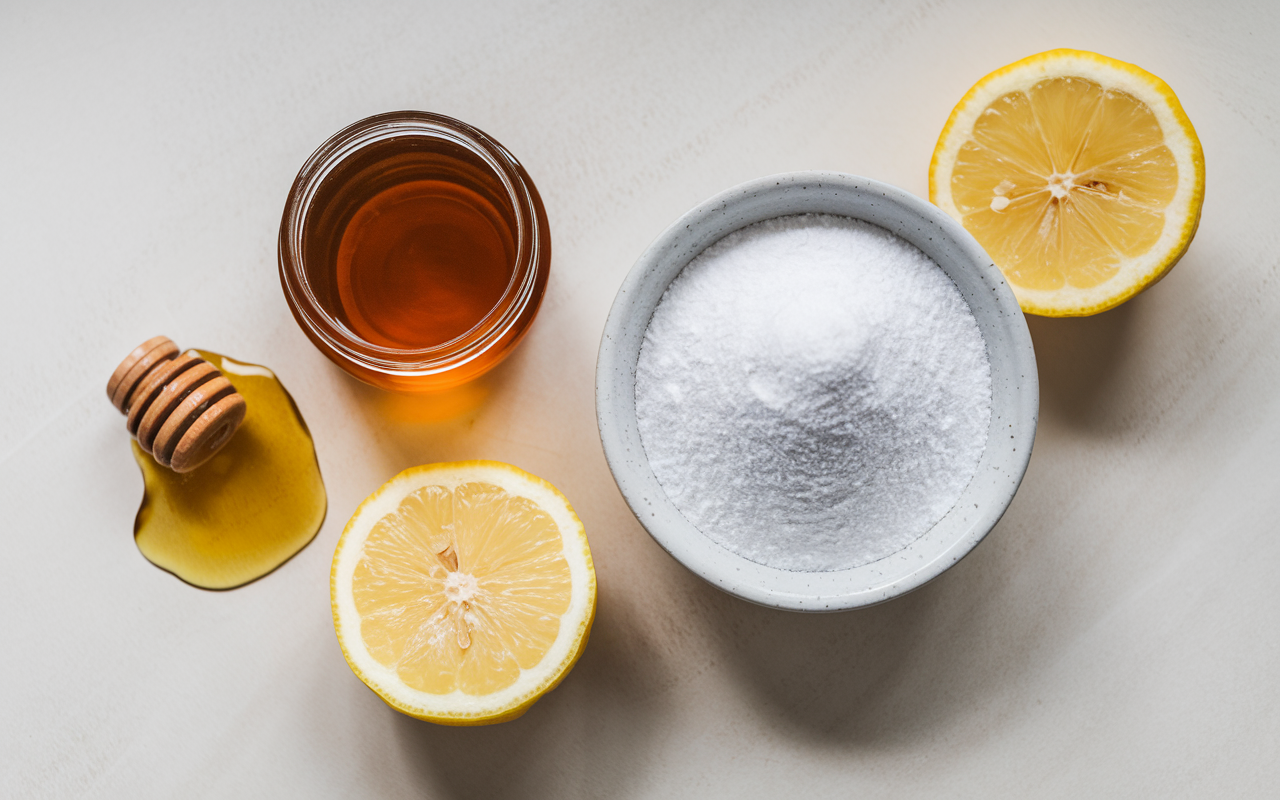
Over-the-Counter Treatments for Blackhead Removal
If natural remedies aren’t cutting it, there are plenty of over-the-counter treatments available that can help remove blackheads and keep them from coming back.
Topical Treatments to Remove Blackheads
Retinoids and Their Benefits
Retinoids are a popular treatment for blackheads because they help to increase cell turnover and prevent pores from becoming clogged. They also have anti-inflammatory effects, which can aid with irritation and redness. Retinoids can be found in both prescription and over-the-counter products, with prescription-strength retinoids being more potent.
Salicylic Acid for Blackhead Treatment
Salicylic acid is a beta-hydroxy acid that penetrates deep into the pores to dissolve the buildup of oil and dead skin cells. It also has anti-inflammatory properties that can help reduce redness and swelling associated with blackheads. Salicylic acid is available in various forms, including cleansers, toners, and spot treatments.
Pore Strips and Masks for Blackhead Removal
How They Work
Pore strips and masks are designed to adhere to the skin and remove blackheads by pulling them out of the pores. While they can be effective for temporarily removing blackheads, they don’t address the underlying causes of blackheads and may not prevent them from coming back.
Are They Safe for All Skin Types?
Pore strips and masks can be harsh on the skin and may cause irritation, especially for those with sensitive skin. If you have sensitive skin, it’s best to use these products sparingly and follow up with a gentle moisturizer to soothe your skin.
Professional Treatments to Remove Blackheads
For those struggling with persistent or severe blackheads, professional treatments may be necessary. A dermatologist can recommend a variety of procedures to help remove blackheads and improve the overall appearance of your skin.
Dermatologist-Recommended Procedures
Chemical Peels
Chemical peels involve applying a solution to the skin that causes the top layer to peel off, revealing smoother, clearer skin underneath. Chemical peels can be effective for removing blackheads and improving skin texture, but they may cause redness and irritation, especially for those with sensitive skin.
Microdermabrasion
Microdermabrasion is a non-invasive procedure that uses a special device to gently exfoliate the skin and remove dead skin cells and impurities. This treatment can assist to remove blackheads and enhance the overall appearance of the skin. Microdermabrasion is generally safe for all skin types but may cause temporary redness and sensitivity.
The Cost and Effectiveness of Professional Treatments
Professional treatments can be more effective for removing blackheads than over-the-counter products or natural remedies, but they can also be more expensive. The cost of professional treatments varies depending on the type of treatment and the provider, but it’s essential to consider the long-term benefits of investing in your skin.
Long-Term Blackhead Management
Once you’ve removed blackheads, it’s important to maintain a consistent skincare routine to prevent them from coming back. Creating a sustainable skincare routine that includes regular cleansing, exfoliating, and moisturizing can help keep your skin clear and healthy.
Creating a Sustainable Skincare Routine
To effectively manage blackheads in the long term, it’s crucial to establish a skincare routine that works for you. This might include:
- Cleansing: Use a gentle cleanser twice a day to remove dirt, oil, and makeup from your skin.
- Exfoliating: Exfoliate 2-3 times each week to remove dead skin cells and avoid plugged pores.
- Moisturizing: Use a non-comedogenic moisturizer to keep your skin hydrated without clogging your pores.
- Sun Protection: Protect your skin from the sun by wearing sunscreen with an SPF of at least 30 every day, even on cloudy days.
Regular Visits to a Dermatologist
Regular visits to a dermatologist can help you stay on top of your skincare routine and address any new or recurring skin issues. A dermatologist can recommend professional treatments or products tailored to your skin type and needs, helping you maintain clear, healthy skin.
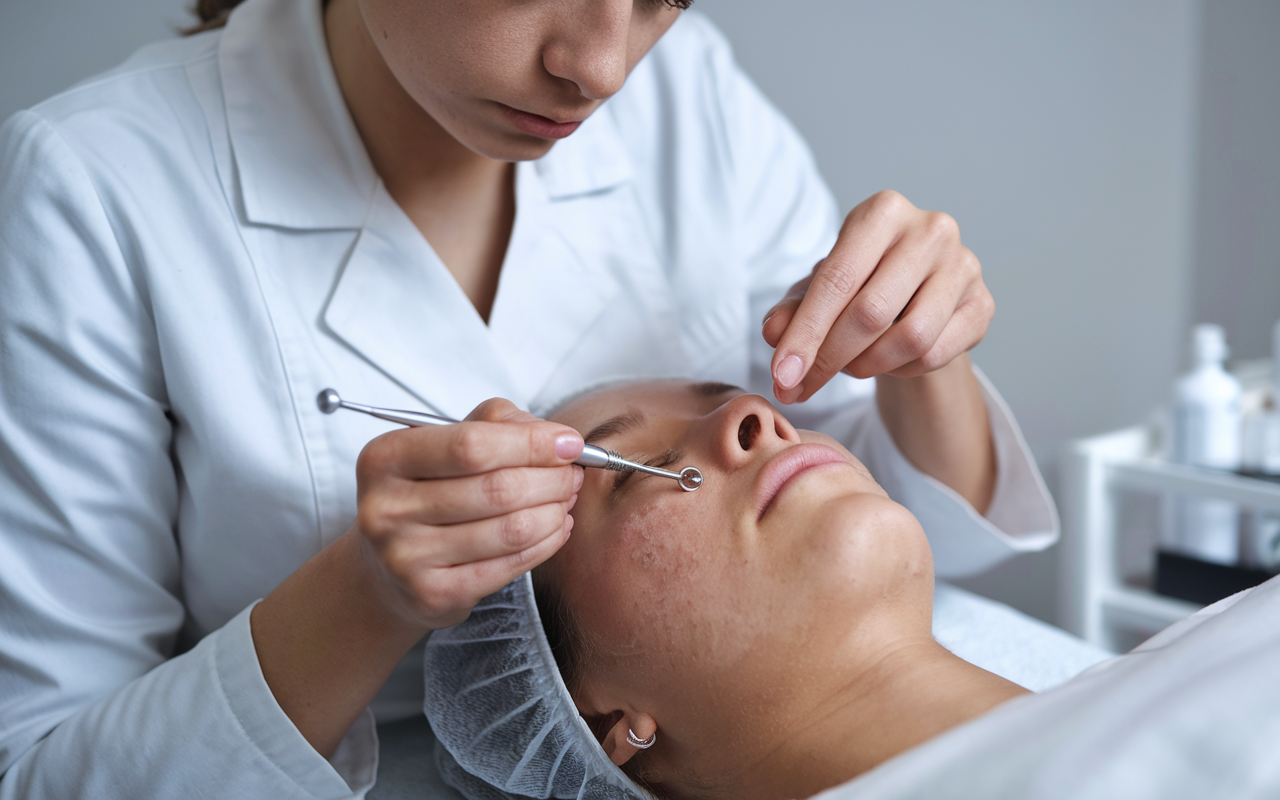
Common Myths About Blackheads
There are a lot of myths floating around about blackheads, and it’s important to separate fact from fiction. For example, squeezing blackheads is not an effective way to remove them and can actually cause more harm than good. Squeezing can damage the skin, cause inflammation, and even lead to scarring.
Another common myth is that blackheads are caused by dirt; in reality, they’re caused by oil and dead skin cells, not poor hygiene. While it’s essential to keep your skin clean, over-cleansing or using harsh products can strip your skin of its natural oils and lead to increased oil production, making blackheads worse.
Debunking Popular Blackhead Myths
- Myth: “Dirty skin is the cause of blackheads.”
Fact: Blackheads are caused by excess oil and dead skin cells clogging the pores, not by poor hygiene. - Myth: “Squeezing blackheads is the most effective approach to remove them.”
Fact: Squeezing blackheads can cause skin damage and scarring. It’s best to use appropriate treatments to remove blackheads. - Myth: “Blackheads will go away on their own.”
Fact: Without proper treatment and a consistent skincare routine, blackheads are unlikely to go away on their own.
Conclusion
Blackheads can be a stubborn and frustrating skin issue, but with the right approach, they can be effectively managed. From a consistent skincare routine to professional treatments, there are plenty of options available to help you remove blackheads and achieve clear, healthy skin. Remember, the journey to clear skin is a marathon, not a sprint, so be patient and consistent with your efforts. With the right strategies and products, you can successfully remove blackheads and keep them from coming back.
FAQs
Q: What are the best products for blackhead removal?
A: The best products for blackhead removal often contain ingredients like salicylic acid, retinoids, and benzoyl peroxide. These ingredients help to exfoliate the skin, unclog pores, and reduce oil production, making them effective for removing blackheads.
Q: How often should I exfoliate to prevent blackheads?
A: Most people should exfoliate 2-3 times a week to remove blackheads, but those with sensitive skin might want to stick to once a week to avoid irritation. It’s important to listen to your skin and adjust your exfoliation routine based on how your skin responds.
Q: Can diet really affect my blackheads?
A: Yes, diet can affect the health of your skin. Eating a balanced diet rich in fruits and vegetables and avoiding excessive consumption of greasy and sugary foods can help reduce the occurrence of blackheads.
A: Are natural remedies effective for everyone?
A: Natural remedies can be effective for some people, but they don’t work for everyone. It’s important to do a patch test before applying any new ingredients to your skin to avoid irritation or allergic reactions. If natural remedies don’t work for you, consider trying over-the-counter treatments or consulting a dermatologist.
Q: When should I see a dermatologist for my blackheads?
A: If over-the-counter products and home remedies aren’t working, or if your blackheads are severe, it might be time to see a dermatologist. They can recommend professional treatments and help you develop a personalized skincare plan to effectively remove blackheads.
Also Visit:
The Ultimate Guide to Perfecting Your Skin Care Routine Order Morning and Night 2024
The Ultimate Guide to Skin Care Products for Sensitive Skin 2024
The Ultimate Guide to Skin Care Natural – Embrace Your Skin’s True Beauty with Natural Ingredients
